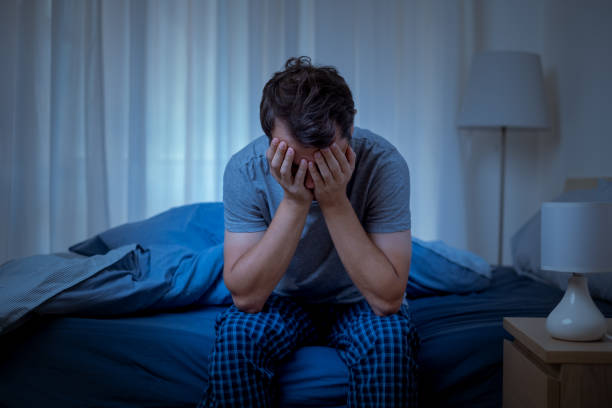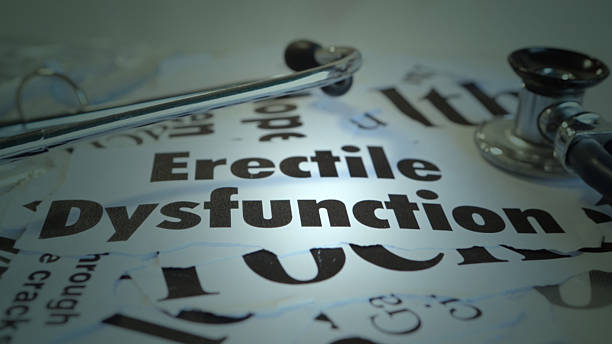Introduction: What is Erectile Dysfunction?
Erectile dysfunction (ED) is a widespread condition where a man has difficulty achieving or maintaining an erection sufficient for sexual activity. While physical health issues like heart disease, diabetes, and hormonal imbalances are often linked to ED, psychological factors also play a crucial role. In this guide, we will dive into the psychological causes of erectile dysfunction and explain how addressing these mental health challenges can help improve your overall sexual health.
If you or someone you care about is dealing with ED, understanding the mental triggers is an essential first step toward finding a solution. This post will explore the most common psychological causes of ED, such as stress, anxiety, depression, relationship problems, and unresolved trauma. We will also provide practical tips on how to manage these issues and restore confidence in your sexual well-being.
Psychological Causes of Erectile Dysfunction
Erectile dysfunction (ED) is often thought of as a condition linked to physical health, but mental well-being plays a significant role too. In fact, psychological factors can be just as important when it comes to experiencing ED. In this section, we’ll explore the key mental health factors that can contribute to erectile dysfunction, helping you understand how your mind can impact your sexual health.

1. Stress and Pressure
In today’s fast-paced world, stress is one of the most common factors contributing to erectile dysfunction (ED). Whether it’s related to work, finances, family obligations, or personal pressures, stress can take a toll on your sexual health and overall well-being.
When you’re stressed, your body produces cortisol, the primary stress hormone, which can disrupt your ability to achieve and maintain an erection. High levels of stress also affect your nervous system, making it harder to concentrate on anything other than the stressors in your life, including your sexual health.
How to cope with stress:
- Exercise regularly: Physical activity is a great way to reduce stress, improve blood flow, and boost overall health.
- Practice relaxation techniques: Meditation, deep breathing exercises, and mindfulness practices are effective methods for managing stress and calming the mind.
- Prioritize self-care: Taking time for yourself, whether it’s enjoying a hobby or simply relaxing, helps reset your body and mind, allowing you to better handle stress.
By managing stress effectively, you can improve your sexual health and overall quality of life.
2. Anxiety: A Common Culprit
Anxiety, especially performance anxiety, can be a major factor contributing to erectile dysfunction (ED). The fear of not being able to perform sexually can trigger physical responses in your body that make it even more difficult to achieve or maintain an erection.
This type of anxiety is often tied to negative thoughts about one’s body, past sexual experiences, or worries about pleasing a partner. The more you focus on the possibility of failure, the more your anxiety increases, creating a harmful cycle that worsens the issue.
Managing anxiety:
- Talk to a therapist or counselor: Cognitive-behavioral therapy (CBT) is highly effective in helping manage performance anxiety and improving mental health.
- Communicate openly with your partner: Sharing your worries and concerns with your partner can reduce pressure and strengthen your relationship.
- Focus on intimacy, not performance: Instead of worrying about being perfect, shift your focus to enjoying the moment with your partner and building emotional connection.
By addressing anxiety and changing your mindset, you can break the cycle and improve your sexual health.
3. Depression and Erectile Dysfunction
Depression is another significant psychological factor that can contribute to erectile dysfunction (ED). When you’re depressed, you may lose interest in activities you once enjoyed, including sex. Depression often leads to low energy levels and a lack of motivation, both of which can negatively impact your sexual health and ability to perform.
The chemicals in your brain, such as serotonin and dopamine, play an essential role in regulating mood and sexual function. When these chemicals are out of balance, as often happens during depression, it can make it harder to achieve and maintain an erection.
Steps to manage depression:
- Seek professional help: A doctor or therapist can help you understand and address the root causes of your depression and create an effective treatment plan.
- Consider medication: Antidepressants can help improve your mood and, in some cases, may also have a positive impact on your sexual health.
- Build a support network: Connecting with friends, family, or support groups can help combat feelings of isolation and provide emotional support during difficult times.
By seeking help and addressing depression, you can improve both your mental well-being and sexual health.

4. Relationship Problems and Communication Issues
In many cases, erectile dysfunction (ED) is connected to relationship problems. Issues like poor communication, lack of intimacy, unresolved conflicts, or an emotional disconnect with your partner can all contribute to sexual dysfunction.
When you’re unhappy or dissatisfied in your relationship, it’s natural for those feelings to affect your ability to perform sexually. Relationship-related anxiety, such as the fear of rejection, can also make erectile dysfunction worse, creating even more stress.
Improving relationship dynamics:
- Open communication: It’s important to discuss any concerns, feelings, or frustrations openly with your partner to improve understanding and reduce tension.
- Couples counseling: A trained therapist can help couples navigate through difficult issues, enhance communication, and strengthen the relationship.
- Rebuild emotional intimacy: Spend quality time together without the pressure of sex. Strengthening the emotional bond can help improve physical intimacy over time.
By improving communication and addressing relationship challenges, you can work together to reduce the impact of relationship issues on sexual health.
5. Past Trauma and Psychological Injury
Sometimes, past trauma, especially sexual trauma, can have a lasting impact on a man’s ability to engage in healthy sexual relationships. Memories of past abuse, assault, or negative experiences can create deep emotional wounds that affect self-esteem and sexual performance.
The psychological effects of trauma can lead to an avoidance of sexual intimacy or trigger feelings of anxiety and fear during sexual activity. These emotional responses can make it even more difficult to enjoy a fulfilling sexual relationship. Addressing past trauma with the help of a therapist is a critical step in healing and improving sexual health.
Healing from trauma:
- Therapeutic support: Therapy options like PTSD counseling, trauma-focused cognitive behavioral therapy (CBT), and EMDR (Eye Movement Desensitization and Reprocessing) can help process and heal from traumatic memories.
- Gentle intimacy: Take things slow during sexual activity, focusing on building emotional connection and trust rather than performance. This can help create a safe space for healing and intimacy.
By working through past trauma and prioritizing emotional well-being, you can improve sexual health and build healthier relationships.
How to Seek Help for Psychological Erectile Dysfunction
If you believe that psychological factors are contributing to your erectile dysfunction, there are several ways to seek help:
1. Therapy and Counseling
Talking to a therapist, particularly one with expertise in sexual health or relationships, can be incredibly beneficial. Cognitive-behavioral therapy (CBT) and sex therapy can help address underlying psychological issues such as anxiety, depression, and performance concerns.
2. Medication
In some cases, medications like antidepressants or anti-anxiety drugs may be prescribed to help manage the psychological factors contributing to ED. However, it’s essential to discuss these options with a healthcare provider to ensure they are appropriate for your situation.
3. Open Communication with Your Partner
Sharing your concerns with your partner can go a long way in reducing anxiety and building trust. When both partners understand the root cause of the issue, they can work together to create a supportive and open environment.
4. Lifestyle Changes
Engaging in a healthy lifestyle that promotes both physical and mental well-being can help alleviate the psychological causes of ED. Regular exercise, a balanced diet, and adequate sleep can improve overall health and reduce stress and anxiety.

The Link Between Mind and Body: Why Psychological Factors Matter
It’s important to understand the strong connection between mental health and physical health when it comes to erectile dysfunction (ED). Your brain plays a crucial role in sexual arousal, and psychological factors, such as stress, anxiety, or depression, can interfere with the brain’s signals to the body. These disruptions can make it harder to achieve or maintain an erection. By addressing these mental health concerns, you can not only improve your sexual function but also enhance your overall well-being. Taking care of both your mind and body is key to achieving better health and a fulfilling sex life.
Conclusion: Take Action to Improve Your Sexual Health
Erectile dysfunction due to psychological causes is a common issue, and the good news is that it’s treatable. Whether it’s stress, anxiety, depression, relationship problems, or past trauma, there are solutions available. The first step is acknowledging the role mental health plays in sexual function and seeking help from a healthcare provider or therapist.
Don’t let psychological factors control your life and relationships. Take action today by seeking professional help, improving your lifestyle, and communicating openly with your partner. By addressing the psychological causes of ED, you can take significant strides towards a healthier, more fulfilling sexual life.

